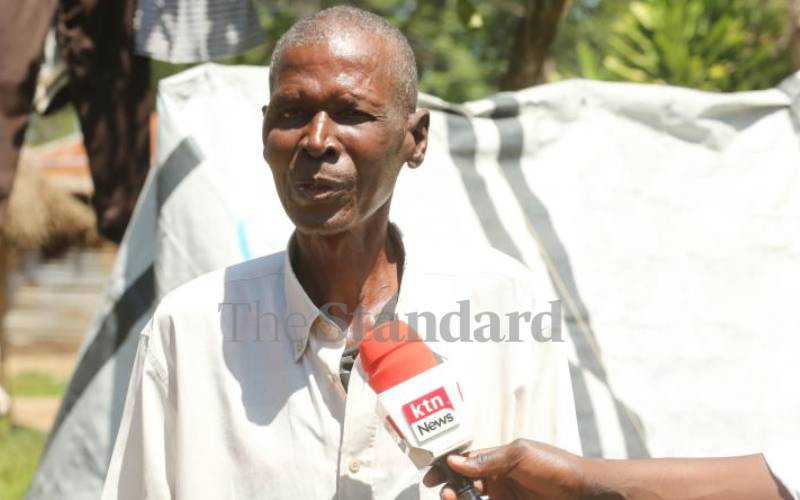×
The Standard e-Paper
Smart Minds Choose Us

Flora Membe is washing clothes outside a battered white canvas tent at Khumwanda, a camp that houses some of the families who were displaced by floods in Budalang'i three years ago.
Just a few metres from Membe, an 11-year-old boy is preparing a meal in the open for his younger siblings. This camp alone houses at least 282 families.